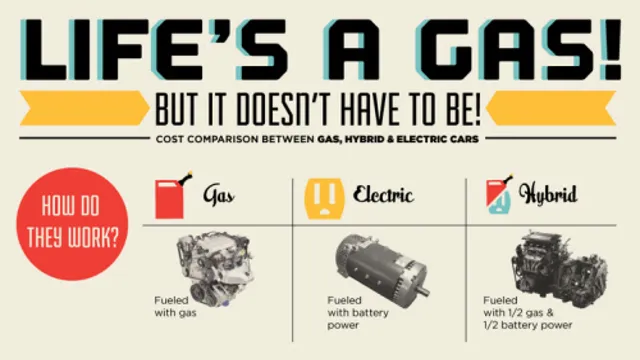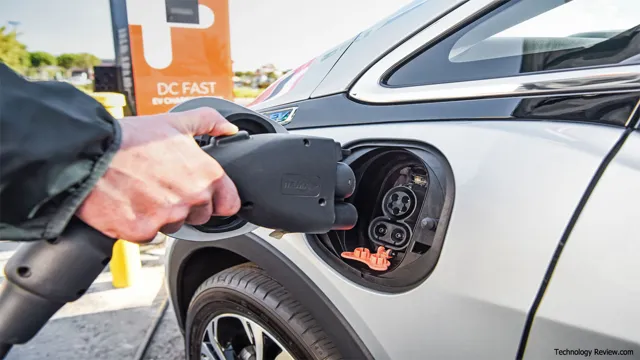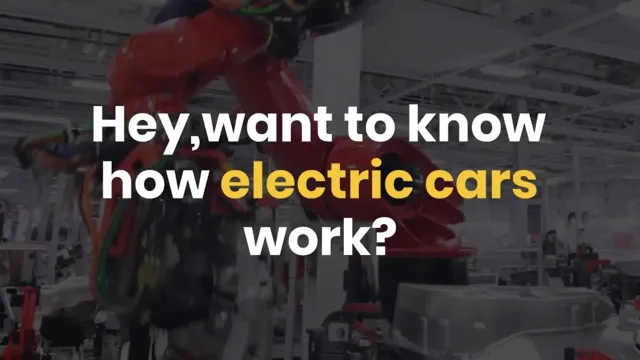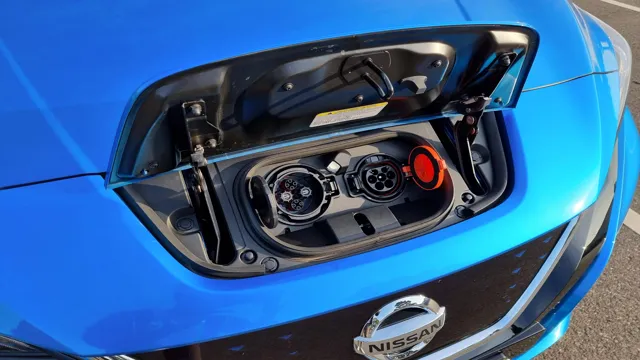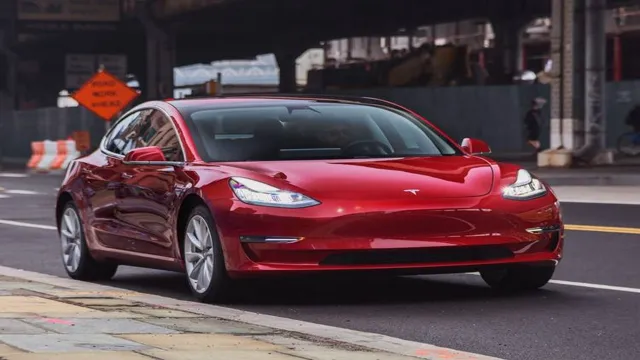Eco-Friendly and Budget-Friendly: Exploring the True Cost to Maintain an Electric Car
Electric cars have gained immense popularity in recent years, thanks to their eco-friendliness and cost-effectiveness. While buying an electric car can save you a lot of money on fuel costs, many people still wonder about the cost of maintaining an electric car. After all, electric cars use a different type of power source, and the components and systems are different from those in traditional cars.
So, how much does it cost to maintain an electric car? The short answer is that it’s generally cheaper to maintain an electric car than a gas-powered car. Electric cars have fewer moving parts, and therefore, require less maintenance. With no oil changes, spark plugs, or timing belts needed, you’ll save on typical maintenance tasks and spend less time at the mechanic.
Additionally, electric cars typically have regenerative braking systems, which can extend the lifespan of brake pads and reduce the frequency of brake replacements. Of course, there are still some costs associated with maintaining an electric car. Battery replacements can be expensive, but they typically last for several years before they need replacing.
Tires and other wear-and-tear items like wiper blades still need to be replaced periodically, but overall, the cost of maintenance is much lower than with traditional cars. When you consider the long-term savings of electric cars, including the reduced cost of fuel and maintenance, it’s easy to see why more and more people are making the switch to electric. With improvements in technology and infrastructure, it’s becoming more accessible and affordable for everyone to make the switch.
So, if you’re considering an electric car, rest easy knowing that the cost of maintenance is likely to be much more manageable than you may have thought.
Average Maintenance Cost
When it comes to electric cars, a common concern is the cost to maintain them. Luckily, the maintenance costs for electric cars are typically lower than those for traditional gas-powered cars. This is because electric cars have fewer moving parts, which means there are fewer parts that can break or wear down.
Additionally, electric cars don’t require oil changes, which can save drivers money in the long run. However, there are still some maintenance costs to consider. For example, the battery will eventually need to be replaced, although this usually doesn’t happen for several years.
The cost of a new battery can vary, but it’s generally more expensive than a traditional car battery. Overall, while there are some maintenance costs associated with electric cars, they are generally lower than those for gas-powered cars.
Maintenance Costs Breakdown
When it comes to owning a vehicle, maintenance costs can add up quickly. These costs can include everything from routine oil changes and tire rotations to more expensive repairs such as brake replacements and engine overhauls. On average, the cost of maintaining a car can range from $500 to $1,000 per year.
However, this can vary depending on a number of factors such as the make and model of the car, the age of the vehicle, and the frequency of use. It’s important to factor in these costs when budgeting for a vehicle purchase as they can have a significant impact on overall ownership costs. By staying up-to-date on routine maintenance and addressing any issues as soon as they arise, car owners can help keep these costs under control.
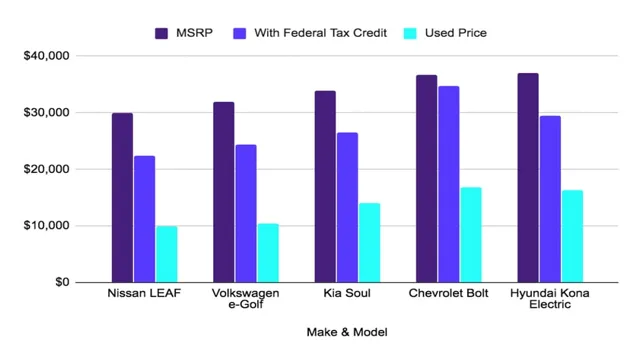
Comparison to Gas Cars
When it comes to comparing electric cars to gas cars, one of the most significant differences is the maintenance cost. Electric cars generally have lower maintenance costs than their gas counterparts. This is because electric motors have fewer moving parts than internal combustion engines, meaning there are fewer parts that can break.
Additionally, electric cars don’t require oil changes or spark plug replacements, which further reduces the maintenance costs. According to Consumer Reports, the average maintenance cost for an electric car is around $600 per year, while for gas cars, it’s around $1,200 per year. So, in the long run, owning an electric car can save you a considerable amount of money on maintenance costs.
Plus, with the growing popularity of electric cars, the prices are expected to drop even further, making them even more affordable for the average consumer.
Lifetime Maintenance Costs
When considering the cost of owning an electric car, it’s important to factor in the lifetime maintenance costs. Unlike traditional gasoline-powered cars, electric cars require less maintenance due to their simpler engines and fewer moving parts. However, there are still some costs associated with maintaining an electric car.
These include routine battery inspections and replacements, brake pad replacements, and tire rotations. While the cost of maintenance for an electric car may initially be higher than a traditional car, the savings on fuel and the overall lower lifetime maintenance costs make it a more cost-effective option in the long run. So if you’re considering purchasing an electric car, remember to factor in the cost to maintain an electric car over its lifetime.
Factors That Affect Maintenance Costs
When it comes to maintenance costs, there are a variety of factors that can impact the amount you end up paying over the lifetime of your asset. One of the biggest factors is the quality of the asset itself. Cheaper products may seem like a steal at first, but they often come with a higher cost of maintenance over time.
Similarly, the environment in which the asset is used can also have a big impact. Assets exposed to harsh weather or moisture are more likely to require frequent repair or replacement. Another factor to consider is the level of usage the asset sees.
The more frequently and heavily an asset is used, the more likely it is to require regular maintenance. Finally, it’s important to keep track of proper maintenance schedules. Neglecting routine maintenance can lead to larger and more expensive repairs down the line.
By taking all of these factors into consideration, it’s possible to make informed decisions that can help minimize lifetime maintenance costs.
Tips to Reduce Maintenance Costs
When it comes to reducing maintenance costs, one factor that often gets overlooked is the lifetime maintenance costs. Instead of just looking at the immediate costs of repairs or replacements, it’s important to consider the long-term costs of maintaining a piece of equipment or property. This includes factors such as how often maintenance will be required, the cost of replacement parts or systems, and the overall lifespan of the item.
By taking a holistic approach to maintenance costs, you can make more informed decisions about purchasing equipment or managing properties that can save you money in the long run. Consider the lifetime maintenance costs of your assets and plan accordingly to maximize your savings.
Potential Tax Credits and Incentives
When it comes to electric vehicles, one of the most significant factors to consider is lifetime maintenance costs. While traditional gas-powered cars require regular and often costly maintenance, electric cars have far fewer moving parts and require less frequent servicing. Additionally, the federal government offers potential tax credits and other incentives for those who purchase electric vehicles.
These credits can offset the cost of purchase and potentially even make electric cars more affordable in the long run. Some states also offer their own incentives, such as tax exemptions and rebates, for those who make the switch to electric. When looking at the total cost of ownership, it’s essential to consider both the savings on maintenance and the potential tax credits and incentives available.
Overall, electric vehicles offer a cost-effective and environmentally friendly alternative to traditional gas-powered cars.
Conclusion
In conclusion, maintaining an electric car may have some costs, but let’s face it; with the current climate crisis, can we really afford not to switch to cleaner transportation options? When you think about it, the price of maintaining an electric car pales in comparison to the cost of environmental damage caused by fossil fuel-powered vehicles. So, let’s not just consider the monetary cost, but also the long-term benefits to our planet and future generations. Let’s make the switch to electric cars and drive towards a brighter, cleaner, and more sustainable future.
After all, there’s nothing more electric than saving the environment!”
FAQs
What is the average cost to maintain an electric car?
The average cost to maintain an electric car is significantly lower than a gasoline-powered car. Electric cars do not require oil changes, and the brakes last longer due to regenerative braking. The maintenance cost for an electric car is approximately $485 per year, compared to $1,117 per year for a gasoline-powered car.
Do electric cars require servicing?
Yes, electric cars require servicing just like gasoline-powered cars, but the frequency is significantly lower. Electric cars have fewer mechanical parts, and the most common servicing required is a battery check. It is recommended to get the battery checked every three years or every 30,000 miles, whichever comes first.
What are the common maintenance requirements for an electric car?
The common maintenance requirements for an electric car include tire rotations, brake fluid replacement, cabin air filter replacements, and battery checks. Some electric cars may also require a coolant flush or a high voltage battery system check.
Are electric cars more expensive to maintain than gasoline-powered cars?
No, electric cars are less expensive to maintain than gasoline-powered cars. The average cost to maintain an electric car is approximately $485 per year, compared to $1,117 per year for a gasoline-powered car. Electric cars have fewer mechanical parts, and the regenerative braking system reduces brake wear. Additionally, some electric car manufacturers offer free maintenance for a certain period after purchase.

